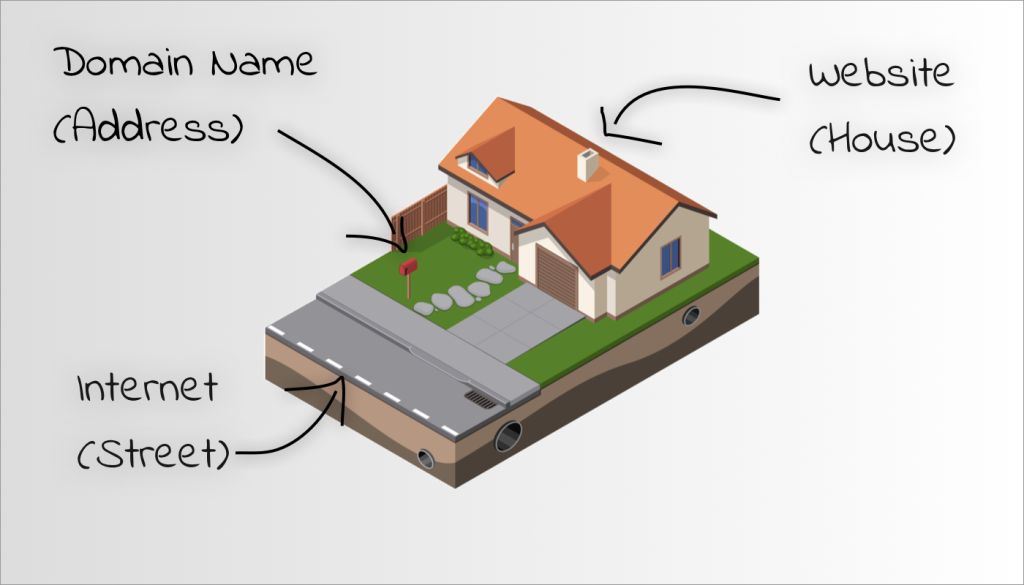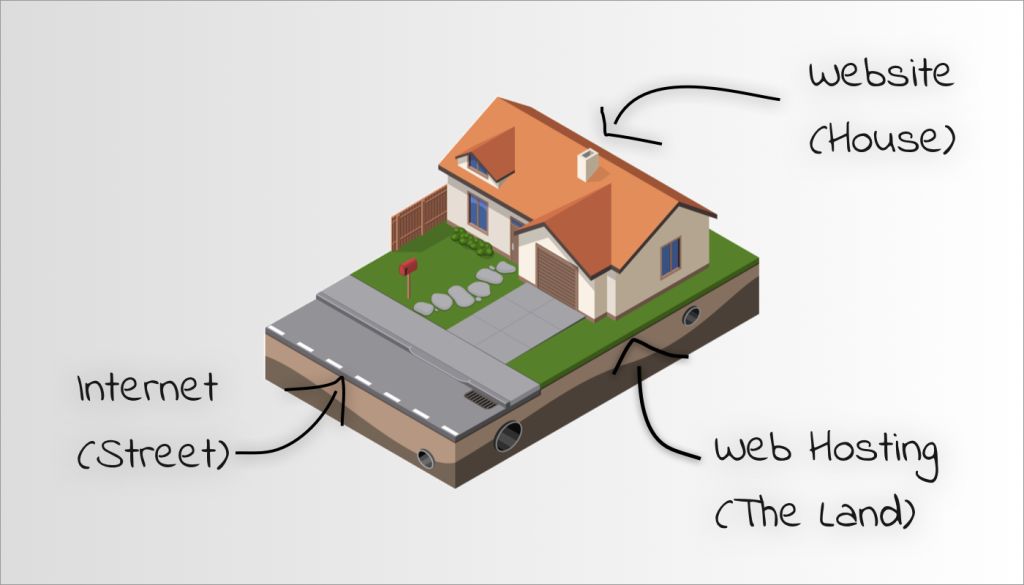When setting up a website, beginners often get confused about domain registration and web hosting.
In this beginner’s guide, I’ll take you through a simple analogy and explain the difference between the two.
Let’s begin with domain registration.
What is domain registration? What is a domain?
A domain name is the URL or address of your website.
Using the analogy of a house being your website, your domain name can be seen as the house address.

Many domain names end in .com (eg. Google.com) while other more modern domain names end in .biz or .agency (eg. unlikely.studio)
To own a website domain, you need to pay for the domain registration. To keep ownership of domain, you will need to pay domain registration every year (or every 2 years in certain scenarios).
The price of domain registration will vary depending on your domain.
Domains that attract a low market price (eg. www.domain-name-that-nobody-wants.com) can be purchased for as little as $10.98 per year.
While on the other hand, domains that attract a strong demand can attract very high registration prices, including this $90 million purchase of LasVegas.com unveiled in 2015. Pricey.
What is website hosting?
Web hosting is a service that allows companies and individuals to post a website onto the Internet.
All websites on the internet need web hosting. Having a domain name registered is not enough to get a website up and running.
Using the analogy of a house being your website, web hosting is the land below your house.

You need land below to host and support your house.
Examples of my favourite website hosting providers include the following…
When internet users want to view your website, they type your website address or domain name into the browser (eg. Google Chrome or Firefox) and subsequently, your webpages will be delivered to them via the browser.
Many different types of hosting plans exist out in the market.
Your specific situation will determine what the right website hosting provider and solution will be.
Final Note
Get in touch if you have any follow up questions or if there’s any questions you have.






